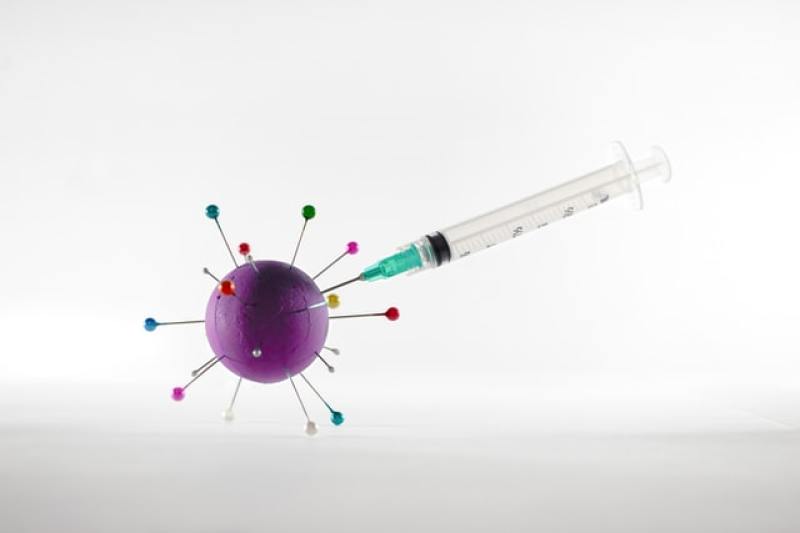
A number of young men who received their second dose of mRNA COVID vaccines reported to experience myocarditis, the inflammation of the heart muscle or pericarditis, the inflammation of the heart's outer lining, reports say.
The U.S. Centers for Disease Control and Prevention deputy director of the Immunization Safety Office Dr. Tom Shimabukuro confirmed 226 cases of myocarditis or pericarditis among those aged 30 and below after they received their second dose of an mRNA vaccine. It remains unclear which vaccines these patients were inoculated with, but in the U.S, mRNA vaccines that are available are from Pfizer and Moderna.
According to NBC News, over 50% of the patients who had myocarditis were teenagers or people in their early 20's. In May, the CDC recommended Pfizer's mRNA COVID vaccines for use among children 12 to 15. Dr. Shimabukuro believes that there is "clearly an imbalance."
While most of the 226 patients were sent home following a hospital visit in May, 15 patients are still in the hospital, with three in intensive care units. Two of the ICU patients reported other health problems. The CDC reported that more than 80% of those who have recovered from heart inflammation issues "got better on their own." CDC believes that "further investigation" is needed to determine causality between the COVID vaccines and the heart inflammation issues as only less than 100 cases are expected for the reported age group.
According to Forbes, 475 out of 789 reported cases of heart inflammation issues were recorded among those 30 years old and below, but only 226 of the 475 "met the CDC working case definition." Up to 81% of the cases have made a full recovery.
The growing evidence supporting the causality of COVID vaccines and heart inflammation issues is also present in Israel. Earlier this month, Reuters reported that Israel's Health Ministry found a "small number" of patients who reported heart inflammation issues following inoculation of Pfizer COVID vaccines. Pfizer recognized the report and denied causality between their COVID vaccines and heart inflammation issues among patients.
The report revealed that between December 2020 and May 2021 275 patients reported myocarditis among the more than 5 million people who received the same vaccine. 95% of patients who reported heart inflammation issues were considered mild, according to a study. It also found that most patients with heart inflammation issues spent at most four days in the hospital. The study concluded, "there is a probable link between receiving the second dose (of Pfizer) vaccine and the appearance of myocarditis among men aged 16 to 30."
Back in the U.S., the CDC has ordered further study on the possible relationship between heart inflammation issues and COVID vaccines, specifically mRNA vaccines from Pfizer and Moderna. On May 24, the CDC advisory group revealed that data from the Vaccine Adverse Event Reporting System (VAERS) "showed a higher than expected number of observed myocarditis or pericarditis cases in 16- to 24-year-olds."
But scientists have decided not to slow down vaccination among the youth, despite a possible link to heart inflammation issues. Dr. Paul Offit, Vaccine Education Center director at the Children's Hospital of Philadelphia encouraged parents to continue to vaccinate their kids against COVID-19. The European Medicines Agency (EMA) believes the same.
"This issue of a transient myocarditis associated with a vaccine is at the moment a theoretical and unproven risk," Dr. Offit argued. "So I think that in the world of trying to weigh relative risks, the disease is a greater risk."
Other side effects
Previous reports indicate that heart inflammation is but one of the possible side-effects resulting from being inoculated with experimental COVID vaccines.
Chinese-made vaccines, for example, were reported to cause fever, nausea, diarrhea, rashes, a tightening of the chest, and shortness of breath in some cases. Others were reinfected with COVID even after getting vaccinated twice. Some even died after getting vaccinated with China's Sinovac.
Other COVID vaccines were also found to cause issues as well. One particular man who received a Johnson & Johnson vaccine, for example, developed a severe rash that could have been life-threatening if left unchecked. Research also suggests that vaccines put older people at higher risk of death.
A vaccine researcher who looked into COVID vaccines provides a simple explanation as to why this is happening. Byram Bridle, a professor of viral immunology at the University of Guelph in Ontario, found that the spike protein in COVID vaccines "was a toxin and was a pathogenic protein." Basically, "by vaccinating people we are inadvertently inoculating them with a toxin," he said.
























